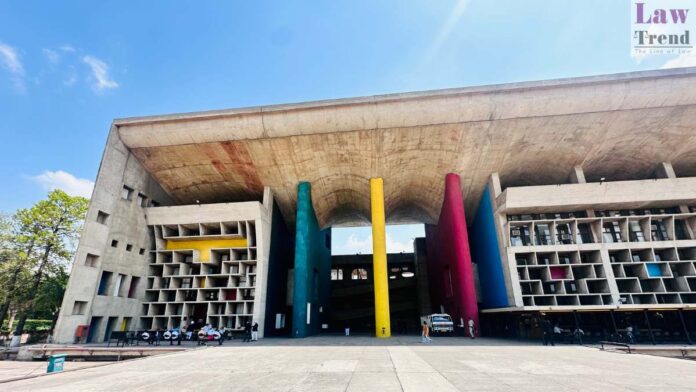The Punjab and Haryana High Court on Monday ruled that Panjab University (PU) can continue requiring incoming students to submit an affidavit pledging not to protest without prior approval, pending the final outcome of a legal challenge to the rule.
The division bench of Chief Justice Sheel Nagu and Justice Sanjiv Berry passed the interim order in response to a petition filed by student leader Archit Garg, who has challenged the constitutionality of the affidavit. The petitioner argues that the university’s condition violates students’ fundamental rights under Article 19 of the Constitution — including the rights to protest, assemble, and express dissent.
The controversial affidavit clause, introduced in PU’s Handbook of Information for the 2025–26 academic session, mandates prior approval for protests and threatens penalties such as exam debarment or cancellation of admission if violated. It applies to newly admitted first-year students and sparked widespread criticism and protests on campus. Several political parties also voiced opposition, prompting PU to constitute a committee to reconsider the guidelines. The committee has hinted at possible relaxation of the terms.
During the hearing, the High Court acknowledged the sensitive balance between rights. It observed, “Which right can be put on higher pedestal — the right to form associations or the right to education? If these rights conflict with the core functions of the university, students must choose. Both cannot go hand-in-hand in conflict situations.”
Senior advocate Akshay Bhan, representing the petitioner, argued that the affidavit lacked legal basis and did not lay out procedures for cancellation of admission. He also questioned the clause barring the involvement of “outsiders” in protests, noting that students cannot be held responsible for the presence of visitors, including former student leaders.
PU’s counsel Subhash Ahuja defended the affidavit, citing past incidents where protests had turned violent and disrupted university functioning. The bench acknowledged the growing challenges faced by academic institutions in managing campus unrest, remarking that “someone has to take strong action.”
The court directed that, as an interim measure, “all students, including the petitioner, shall fill the undertaking,” noting that this would remain subject to the final outcome of the petition. It also asked the university to respond by September 4, taking into account the July 17 deadline for filing affidavits.




